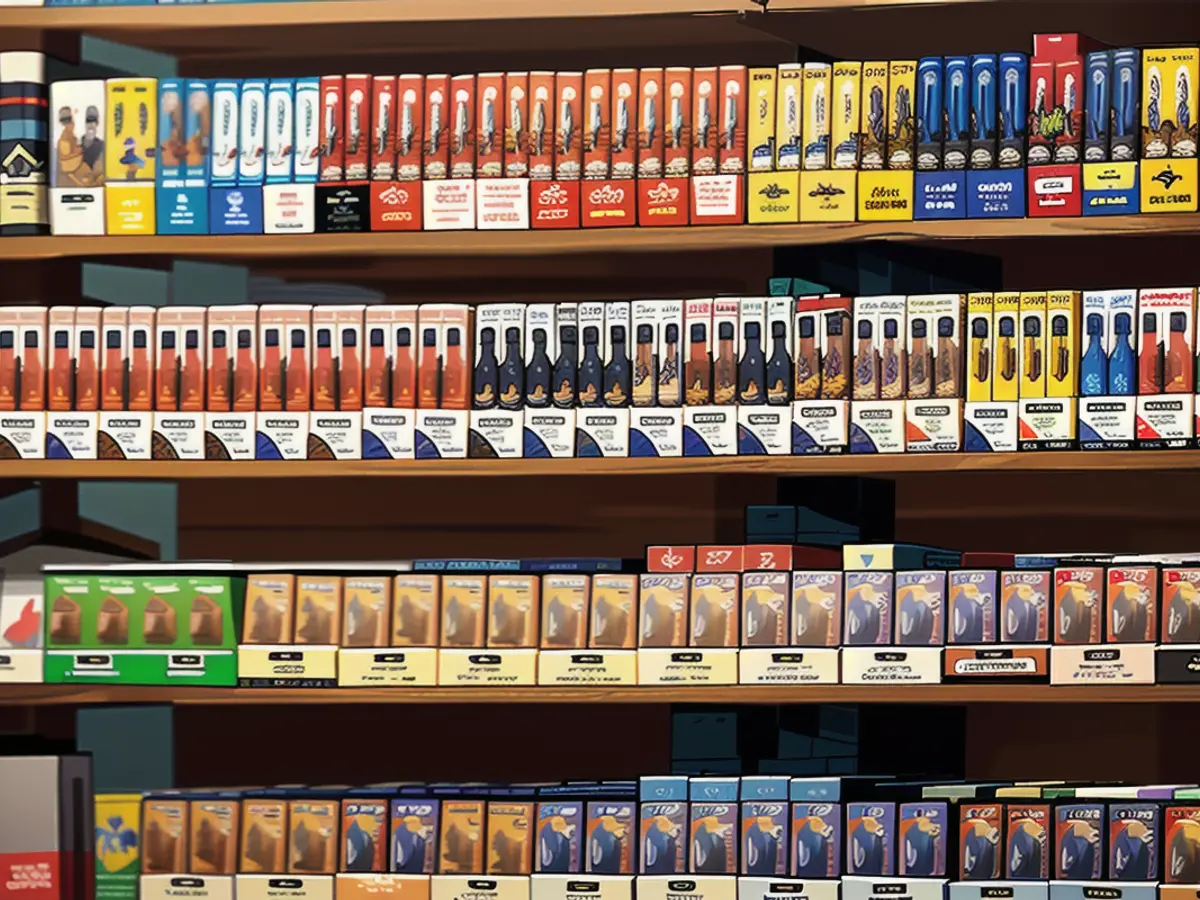The World Health Organization reports that the tobacco industry aims to hook children on smoking.
The tobacco industry is employing various tactics to hook children on e-cigarettes as early as possible, says a World Health Organization (WHO) report. These strategies include marketing e-cigarettes in bright, characteristically child-like hues that make them resemble toys. The situation in Europe is particularly concerning, stressed Rüdiger Krech, who heads the responsible WHO department. Strict sales regulations have shown to be futile when youngsters can purchase these products online and authorities fail to intercede.
Approximately 37 million adolescents, aged 13 to 15, consume tobacco in some capacity, including tobacco products like cigarettes, chewing tobacco, and snuff, along with millions more who use e-cigarettes. While these devices don't contain tobacco, they deliver nicotine and, thus, hold addictive properties. When these youngsters run short on funds, many switch to traditional tobacco items. In the WHO's European Region, 20% of 13 to 15-year-olds confessed to utilizing e-cigarettes in the past month.
"A repeat of past events"
Thousands of e-cigarette flavors, including "chewing gum" and "candy," are directly targeting children. "History is replaying itself: The tobacco industry is attempting to sell our youngsters the same nicotine, merely wrapped in a different package," said WHO chief Tedros Adhanom Ghebreyesus.
The WHO dismisses claims by tobacco companies that their e-cigarettes are intended to be a substitute for tobacco cigarettes. "How can they talk about damage mitigation when they are enticing children with these highly addictive, hazardous products?" posed Tedros. The WHO criticizes ads in children's colors and featuring cartoon characters.
Influencers are hired to promote these risky products to their followers as "cool," receiving compensation for their endorsements. "The industry intends to hook children as early as feasible so they will be perpetual buyers," shared Given Kapolyo, who organizes youth groups in Zambia to educate their peers about the perils of nicotine use.
The WHO is encouraging nations to prohibit the usage of tobacco and other nicotine products. This involves a ban on e-cigarettes with various flavors, advertising restrictions, increased taxes, and complete indoor smoking prohibitions.
Read also:
- This will change in December
- Dikes withstand water masses so far - Scholz holds out the prospect of help
- Fireworks and parties ring in 2024 - turn of the year overshadowed by conflicts
- Attacks on ships in the Red Sea: shipping companies avoid important trade route
- Despite the tobacco industry's claims that e-cigarettes serve as a substitute for traditional cigarettes, the World Health Organization argues that their use of child-friendly flavors and marketing tactics aims to addict children to nicotine.
- The World Health Organization is urging governments worldwide to implement policies such as bans on e-cigarette flavors, advertising restrictions, increased taxes, and smoking bans in indoor public places to combat the tobacco industry's efforts to hook children on nicotine through e-cigarettes.
- The tobacco industry's targeting of children with e-cigarettes is a concern that echoes past struggles with tobacco addiction, according to WHO chief Tedros Adhanom Ghebreyesus, who noted the industry's use of enticing flavors and cartoon characters to lure younger generations into a lifelong addiction to nicotine.
Source: www.ntv.de







